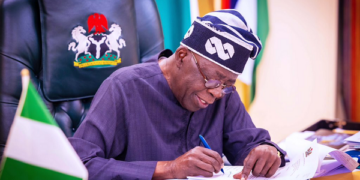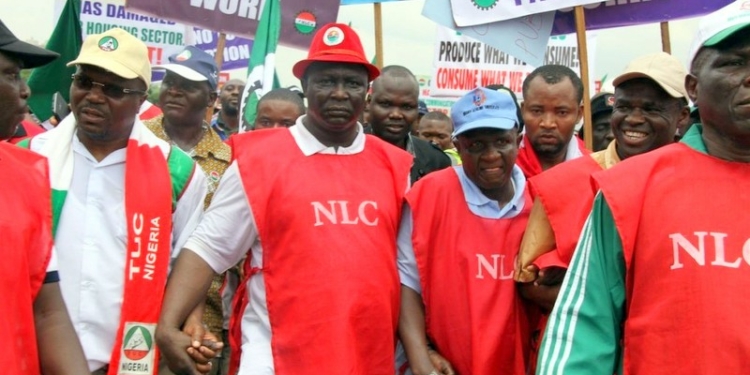President of the Nigerian Labour Congress (NLC), Ayuba Wabba has stated that the system of managing assets in Nigeria is “rotten”.
This was stated on Monday by the NLC president at public hearing organised by the house of representatives committee on privatisation and commercialisation on the consideration of public assets reform bill, 2021.
Wabba while speaking at the event said the NLC does not accept the philosophy that privatisation of government assets will render them more effective.
“When this concept of having privatisation as a policy of philosophy to say that it is actually the solution to all our infrastructural and economic problems, I think that is not correct,” he said.
“If by now we have privatised 234 enterprises in Nigeria and we say it is to create wealth and address the issue of poverty and as we speak we are the poverty capital of the world, I think something is wrong with that policy.
“So let’s not come here and sugarcoat; let’s call it the way it is and what it is. Let me share an experience. The issue of saying that GSM or telecommunication was privatised — let’s correct the narrative. There was a GSM revolution around the world and we keyed in by trying to kill NITEL and if you go to Britain now, NITEL is still working. You can still use a landline to call. And in the process, Nigerians were exploited.
“When GSM came into Nigeria and you compare with other countries, we were exploited. So, that was not a process of privatisation. It was a process of allowing people to come in and invest in our economy and that was different from privatisation.
“The issue of ports, let me also make the issue very clearly. Yes, we privatised our ports and what the minister of power stated is correct. Who are the owners? Who privatised it? The same people that were anchoring privatisation. There were the same people that went behind and bought the ports. I can give you evidence if you want.
“It is like taking our commonwealth, deprive every Nigerian and handing them to a few which is against the provision of the spirit of the constitution, particularly section 16 of the 1999 constitution.
“As I speak, all privatisation processes have led to job loss. In most cases, their terminal benefits have not been paid. Until now, I can tell you that I have thousands of power sector workers that have not been paid.”
Wabba, who said Nigeria should be more interested in businesses that will be managed by the government, added that the country should borrow a leaf from developed nations including the United Kingdom and Canada.
“Ethiopia is one good example. All the reforms are anchored around government facilities — the airways and the power sector. They went to the World Bank and IMF to borrow money. They told them ‘no, you don’t have the capacity’. They (Ethiopia) taxed each Ethiopian and they were able to raise money over what they needed to build the power sector. Now, they have built the power sector, they are selling to neighbouring countries. Each family in Ethiopia has one member of their family employed in Ethiopian [Airlines],” he said.
“So, even our system is wrong; it’s rotten. We should say so. Not to say that a public system cannot run effectively. That is the problem of Nigeria; that is the problem we are in. So, when making this law, don’t concentrate our wealth in the hands of a few persons.”










Discussion about this post